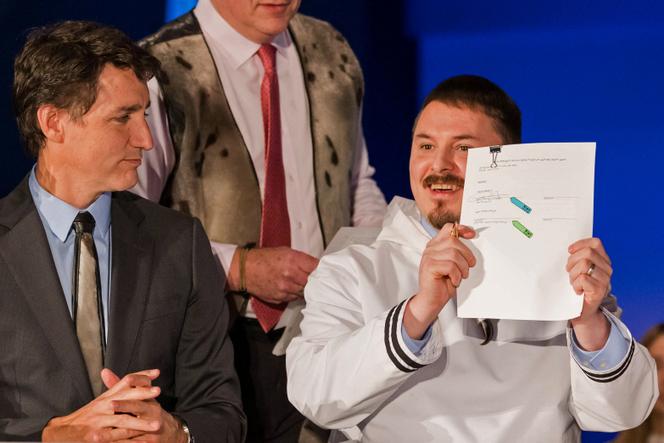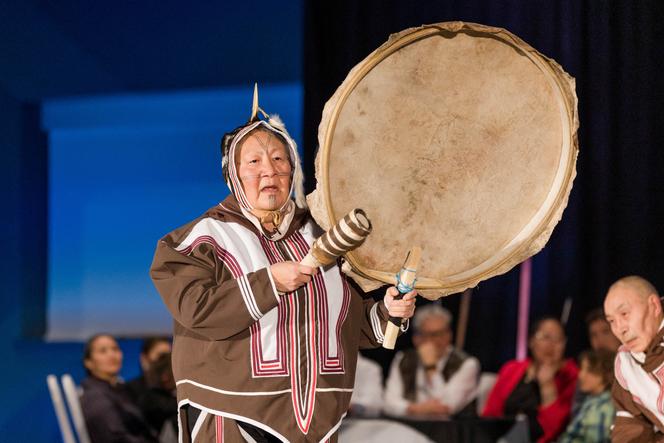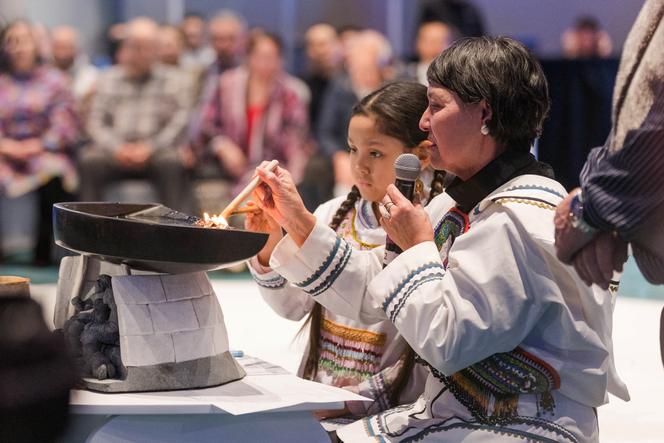


Canadian Prime Minister Justin Trudeau signed a devolution agreement on Thursday, January 18, with Nunavut Premier P.J. Akeeagok, giving the territorial government of Nunavut responsibility over its lands and resources, and the right to collect royalties that would otherwise go to the federal government. It comes after decades of negotiations between Nunavut and the federal government, and is to be fully implemented over the next three years.
Nunavut, at more than two million square kilometers (800,000 square miles), is almost three times the size of the US state of Texas and is believed to hold some of the richest resource deposits in the country including gold, diamonds and rare earth minerals, as well as oil and gas. With global warming, the Arctic territory is becoming more accessible for mining and shipping.


"Inuit have hunted and fished and lived on these lands for generations, some going back well before recorded history. Today begins a new chapter in the history of Nunavut, a transformative chapter," Trudeau said at the signing ceremony. "This is a place that is rich with culture, traditional knowledge, critical minerals, and other resources that are needed as we build the economy of the future together," he said. "And with this increased control, (the government and people of Nunavut) will be able to have more say and more prosperity."
"It's our land, our resources (now) in the hands of our people," cheered Akeeagok.
Nunavut, which was created in 1999, is the last of Canada's three Arctic territories – after the Northwest Territories and the Yukon – to take over full control of its lands.
